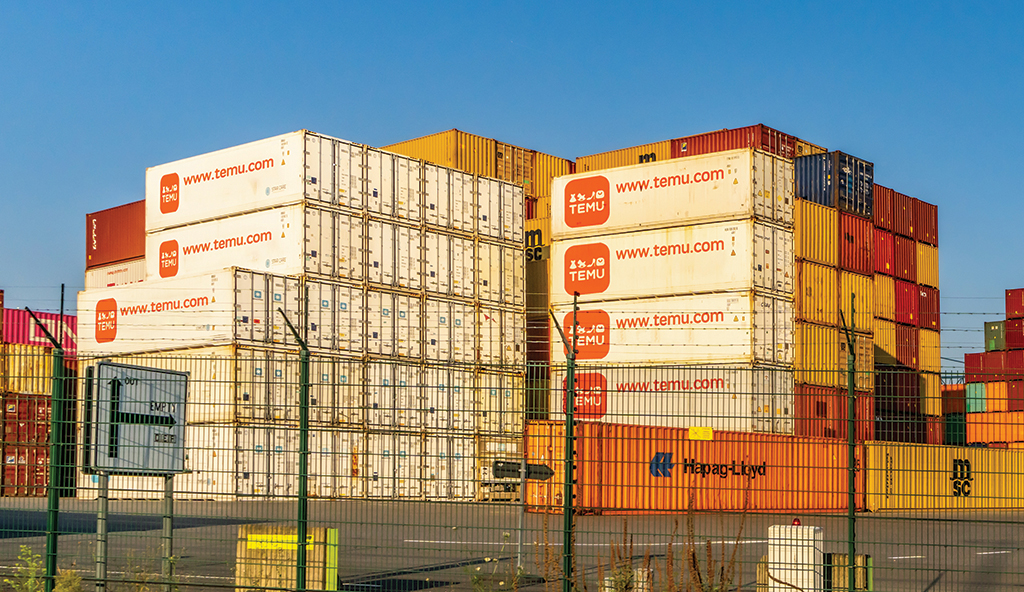No More Pass for Low-Value Imports Under $800 from China
On April 2, President Trump issued an executive order ending the ‘de minimis’ exemption for low-value imports from China and Hong Kong, effective May 2. Products under $800 were previously tariff-free, but this new measure has slowed the spread of low-cost Chinese goods in online purchases, benefiting offline retailers, particularly beauty supply shops. However, on May 12, the U.S. and China agreed to temporarily halt the tariff war and reduce some duties, adjusting the tariff on low-value imports, which was once as high as 120%, to 54%.

©AA+W – stock.adobe.com
What Is the De Minimis Rule?
‘De minimis’ is a legal term from Latin meaning “the law does not concern itself with trifles.” In trade, it refers to a policy that exempts low-value imports under a certain threshold from duties and taxes such as tariffs and VAT. (Source Wikipedia)
U.S. and the Relationship Between Shein, Temu, and De Minimis
- The U.S. has allowed duty- and tax-free delivery for overseas purchases under $800.
- Chinese discount platforms like Shein and Temu leveraged this rule to ship most products directly to U.S. consumers without tariffs.
- Since most items are priced under $800, they offered fast, tax-free shipping, fueling explosive growth in the U.S. market.
Controversy and Change
Small and mid-sized businesses, along with major retailers like Target and Walmart, have long criticized the ‘de minimis’ rule for giving Chinese companies an unfair advantage. The beauty industry, in particular, actively submitted petitions and pushed for policy reform.
On April 2, 2025, President Trump signed an executive order ending ‘de minimis’ benefits for parcels from China and Hong Kong, effective May 2. As U.S.-China tariff tensions escalated, imports under $800 were hit with tariffs of up to 120%. The end of duty-free access to cheap Chinese goods is seen as a positive shift for offline retailers, especially in the beauty supply sector.
However, on May 12, 2025, the U.S. and China agreed to a 90-day temporary tariff truce, easing some duties. Tariffs on low-value parcels were reduced from 120% to 54%, but analysts note the rate still remains burdensome for online consumers. Compared to the full de minimis exemption, significant restrictions still apply, which continue to benefit offline retailers.
Temu and Shein Adjusting Strategies
An analysis of 14 popular Temu products reveals that many have more than doubled in price, with some items now costing more with tariffs than their original price, a reversal in value. For now, U.S.-based inventory is helping stabilize prices, but further hikes seem inevitable once that stock runs out. Temu is shifting from direct shipping from China to a U.S.-based warehouse delivery system. It’s also working with domestic sellers to expand local sourcing. Similarly, Shein has raised some prices and is restructuring its supply chain by diversifying production to countries like Brazil and Turkey.
Anticipation of Shifting Consumer Trends
Despite past issues with shipping delays and quality, Chinese direct-to-consumer platforms, which gained popularity solely through low prices, are starting to lose their price competitiveness, signaling a shift in consumer behavior. Some former Temu and Shein users are turning to Amazon’s ultra-low-cost items or local U.S. retail stores, marking a clear shift in shopping trends.
For offline beauty supply stores, this shift can create a valuable opportunity. Key products like wigs, extensions, and haircare items, which have long been overshadowed by cheap Chinese imports, may regain price competitiveness. While some caution that established online purchasing systems won’t collapse easily, it seems the pace of their expansion has now slowed.
Now, beauty supply stores must focus on how to regain and expand their connection with consumers. Efforts to rebuild their image as “trustworthy local specialty stores” through social media and community-based marketing are becoming increasingly crucial.